Anne Carson and the Unknown: Explorations in 21st-Century Experimental Poetry
Materias de especialidad:
Descripción:
This international conference on Canadian author and translator Anne Carson aims to stimulate discussion about an aspect of her work that has been little explored thus far: the unknown. The unknown—which has conceptual roots in, inter alia, the fantastic and psychoanalysis—is, however, a key notion in Carson’s writings. Elizabeth Harvey has recently explored aspects of the unknown in Carson’s oeuvre in relation to the incognito, which she connects to “madness, death, silence, dementia, mourning, prophecy, frenzy, anachronism and sleep” (2021: 106). Moreover, Carson’s focus on the unknown can be linked to her characteristic juxtaposition of the poetic and scholarly in her writing. In Symbolon: The Poetry of Anne Carson (2015), Drew McDowell goes as far as to claim that Carson’s greatest achievement lies in “her recursive questioning about the relation between poetry and knowledge” (247). McDowell is not the only scholar who has noted the importance of questioning—a prerequisite when engaging with the unknown—in Carson’s work (e.g. Upton 2005). In From Cohen to Carson (2008), Ian Rae has remarked that Carson’s “preferred subject of inquiry is […] a centripetal force whose centre cannot be reached” (258). In light of this crucial aspect of thorough re-interrogation, how does Carson’s work (re)configure the relation between knowledge and poetry, including examples that test the boundaries of the genre? In particular, given Carson’s renown as an innovator of form that breaks the mold of generic expectations, we might ask what alternative modes of thinking her poetic experiments produce.
Such repeated—or even “obsessive” (Upton 2005: 28)—inquiring can also take the form of a creative practice of “erring,” described by Laura Jansen in her introduction to Anne Carson / Antiquity (2021) as “a sense of straying from the accepted or expected course or standard of things and, pointedly, what happens as one stands on the edge of certain matter and jumps into the unknown” (5). Errancy is here conceived as a route into understanding how the unknown operates in Carson’s work. But the unknown is not only related to such “route[s] to the strange” led by the potential of language (Sze 2021: 64). Johanna Skibsrud has addressed the idea of the other as an unknowable in The Poetic Imperative (2020) by analyzing the ability of the poetic subject to write past its own boundaries and enact “the possibility of constantly reconfiguring the relation between telling and not telling, self and other” in Carson’s work (14). Moreover, Christine Wiesenthal has identified a “deliberately elliptical”, “parsimonious poetics” in Carson’s oeuvre that considers the excised and unknown in a tension between affective grief and “ironic economic rationalism” (2020: 196, 205).
Such repeated—or even “obsessive” (Upton 2005: 28)—inquiring can also take the form of a creative practice of “erring,” described by Laura Jansen in her introduction to Anne Carson / Antiquity (2021) as “a sense of straying from the accepted or expected course or standard of things and, pointedly, what happens as one stands on the edge of certain matter and jumps into the unknown” (5). Errancy is here conceived as a route into understanding how the unknown operates in Carson’s work. But the unknown is not only related to such “route[s] to the strange” led by the potential of language (Sze 2021: 64). Johanna Skibsrud has addressed the idea of the other as an unknowable in The Poetic Imperative (2020) by analyzing the ability of the poetic subject to write past its own boundaries and enact “the possibility of constantly reconfiguring the relation between telling and not telling, self and other” in Carson’s work (14). Moreover, Christine Wiesenthal has identified a “deliberately elliptical”, “parsimonious poetics” in Carson’s oeuvre that considers the excised and unknown in a tension between affective grief and “ironic economic rationalism” (2020: 196, 205).
País:
Bélgica
Correo electrónico:
